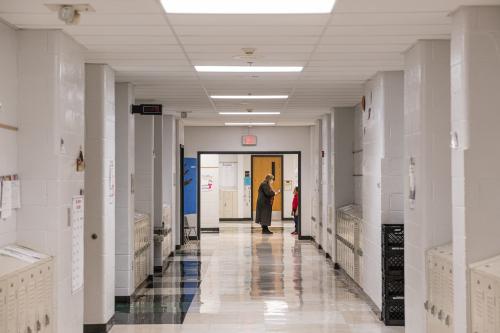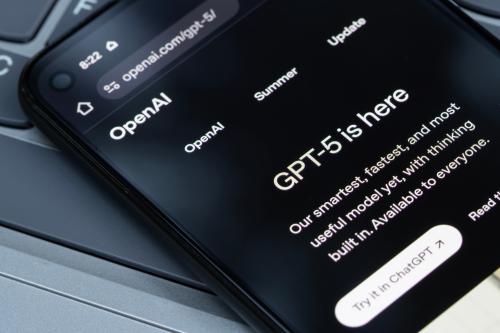Joseph Fishkin’s focus on ‘bottlenecks’ on the path to economic mobility is a welcome and constructive addition to the conversation about opportunity.
The bottlenecks approach is particularly applicable to postsecondary education. Few high-stakes choices are as pockmarked with pitfalls that can throw aspiring students off-track Three points:
The Value of the Bottleneck lies in the Fact of the Bottleneck
Like it or not, some bottlenecks play a role in sorting individuals according to their talents and abilities. Part of the reason college graduates are more successful than others in the labor market is because not everybody makes it through the bottleneck.
It’s true that getting a four-year college degree has a massive effect on economic mobility, but it is also true that very few low-income people make it that far (see my February post on this blog). Think about what this means for our measure of the value of the opportunities on the other side. It’s based on a highly self-selected group of people. It’s as if we tested the effect of a drug on health by seeking out the healthiest people, asking them to run a marathon, and then giving the drug to those who finished before measuring their health outcomes. Do we really think the results would be similar if a broader group of people made it through?
The point is, widening the college bottleneck considerably (i.e.: letting more people through) could dramatically change the character of the opportunities on the other side.
Now to be clear: this outcome depends on how the bottleneck is widened (or how policy creates a way around it). That brings up the second distinction.
College Bottlenecks Are Not All About Merit
Some postsecondary bottlenecks sort individuals according to knowledge, skills, and abilities: reaching a college-ready standard, learning necessary content and skills, and passing required courses. Others sort people on more arbitrary grounds: can you fill out a complex government form in order to apply for financial aid, or did you sign up for classes early enough to get the courses you need to graduate on time?
Note that for college degrees to have value, the former set of bottlenecks must exist. But the same is not true for the latter. Simplifying the financial aid application process would help ensure that students who are sufficiently talented and driven to succeed do not get locked out on procedural grounds, but would otherwise leave the other sorting process intact.
More Ways Around the College Bottleneck
Many Americans invest in existing colleges and universities because they see no alternative path to the middle class, not because they think they are getting a good deal. That means there is a large, latent market for alternative pathways.
Who says a degree has to be four or two years long? Why can’t students hop in and out of the postsecondary system when job demands change and they want to move up in the world? Rather than thinking only about how we can cram more people through the traditional bottleneck, policymakers should spend more time thinking about how to seed creative ways around it.
On Monday: The Money Bottleneck in American Opportunity
The Brookings Institution is committed to quality, independence, and impact.
We are supported by a diverse array of funders. In line with our values and policies, each Brookings publication represents the sole views of its author(s).





Commentary
Can You Have College Without the Bottleneck?
May 9, 2014